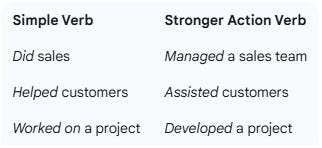How Business English Can Get You A Job
Level Up Your Career
Are you an intermediate English learner ready to take your career to the next level?
You’ve come to the right place.
This week, we’re talking about jobs, interviews, and recruitment, and how mastering business English can be your secret weapon.
You might think your current English level is enough, but to truly stand out, you need to go beyond everyday conversation.
Let’s explore why.
Why “Business English” Isn’t Just for Businesspeople
When you hear “business English,” you might think of formal meetings, corporate jargon, and complicated reports.
While that’s part of it, it’s also about using professional, precise, and clear language in a work context.
It’s the difference between saying, “I want a job here” and “I’m eager to contribute my skills to your team.” - One is a simple statement; the other shows ambition and understanding of the professional world.
Learning business English helps you:
Communicate effectively: You’ll be able to express your ideas and opinions clearly, without confusion. This is crucial for interviews, meetings, and even simple email exchanges.
Sound more professional: Using the right vocabulary and grammar shows you’re serious and competent. It signals that you’re ready for a more challenging role.
Understand professional contexts: Business English includes common idioms, phrases, and cultural norms used in the workplace. Knowing these can help you avoid misunderstandings and build better relationships with colleagues and clients.
The Job Application: Your First Impression
Your job application is the first thing a company sees, and it’s your chance to make a great impression. This includes your resume (CV) and your cover letter.
Your resume should be a professional summary of your skills and experience.
Instead of using simple verbs like “did” or “made,” use powerful action verbs to describe your achievements.
Similarly, your cover letter is where you connect your skills to the specific job you’re applying for. This is where your ability to write clearly and persuasively in English really shines.
A well-written cover letter shows you’re not just a qualified candidate, but a thoughtful and articulate one.
Mastering the Interview: A Conversation, Not a Test
The job interview is often the most nerve-wracking part of the process, but with the right preparation, you can turn it into a confident conversation.
Remember, it’s not a test of your English; it’s a chance to show them why you’re the best person for the job.
Here are some tips for using business English in an interview:
Practice common questions: Be prepared to answer questions about your experience, your strengths, and your goals. Practice your answers out loud so they sound natural.
Use professional vocabulary: Use phrases like “I’m a team player,” “I’m results-oriented,” and “I’m looking for a new challenge.” These show that you understand the professional landscape.
Ask smart questions: At the end of the interview, you’ll be asked if you have any questions. This is a great opportunity to show your interest. Ask about the company’s culture, opportunities for growth, or the challenges of the role. This shows you’re thinking beyond just getting the job.
Watch this to help you more…
Fluency vs. Confidence: The Real Goal
Many English learners feel they need to be perfectly fluent to succeed.
The truth is, confidence is often more important than perfect fluency.
A few mistakes won’t hurt you if you can communicate your ideas clearly and confidently.
Be clear, not complex: It’s better to use a simple, clear sentence than a complicated one that might confuse your listener.
Focus on communication: Your goal is to get your message across. Don’t worry about speaking like a native; focus on speaking effectively.
Show your personality: An interview is also about a cultural fit. Let your personality shine through. Be yourself, be honest, and let your enthusiasm shine through.
By focusing on these aspects of business English, you can transform your job search from a challenge into an opportunity.
Plus watch this…
Good luck, and remember: with a little preparation, you’ll be well on your way to your dream job!



